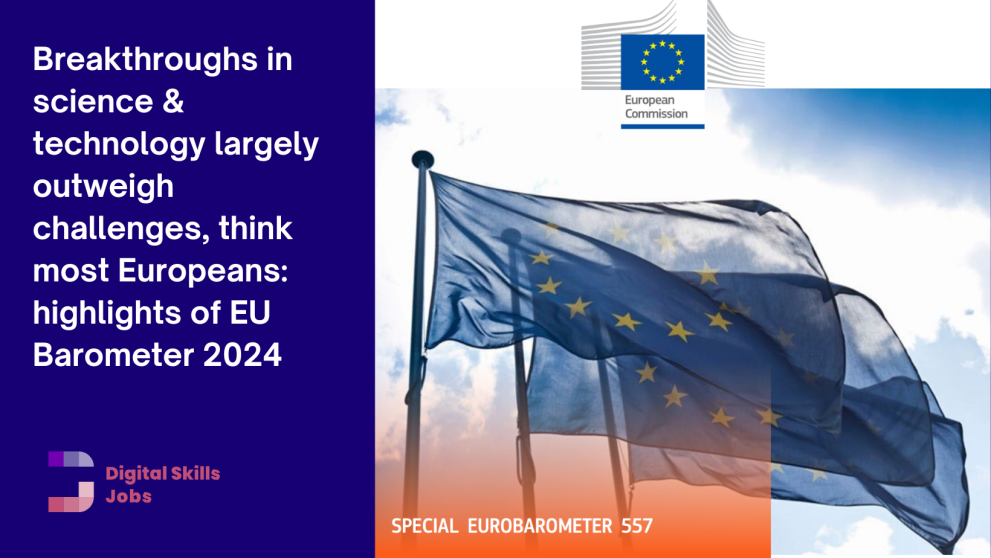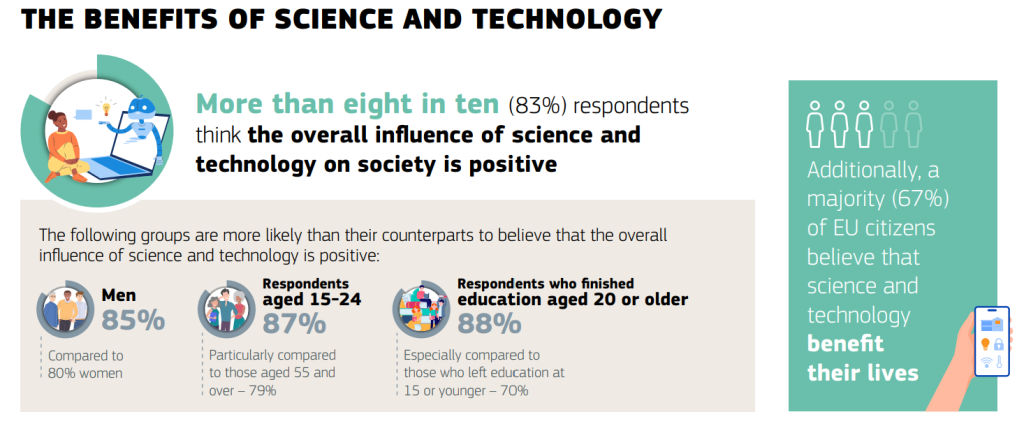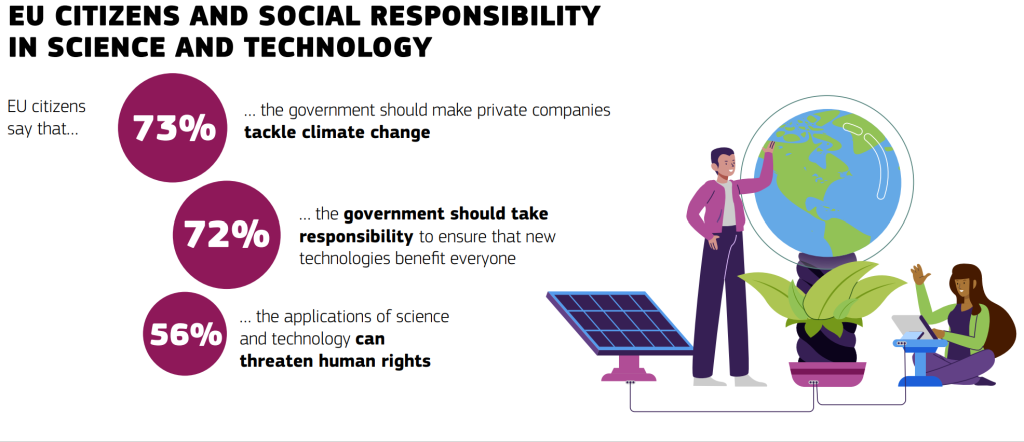Breakthroughs in science & technology largely outweigh challenges according to most Europeans: highlights of the 2024 special EU Barometer

A new Eurobarometer survey, launched by the European Commission, Directorate General for Research and Innovation (DG RTD), analyses the responses of 34,207 people: diving more specifically into their knowledge and attitudes towards science and technology. The survey encompassed 27 EU Member States and 8 non-EU countries and was conducted between 12 September and 10 October 2024.
Science and technology: how big are our gains?
Overall, European citizens seem to agree that science and technology have had a positive influence on society, and that their lives have become better as a result. The report states that "two-thirds (67%) of respondents believe that science and technology makes our lives easier, healthier and more comfortable". The days when we didn't have a washing machine at our disposal are long gone!)

In addition, the report notes that an overwhelming majority of EU citizens (87%) count on renewable energies to exert a positive impact in the future. More than six out of ten respondents in each EU Member State expect renewable energies to bring benefits to society within the next 20 years. This is very much the case in Sweden, where this ratio stood at 96%, and Denmark, Portugal and Finland, where 95% of people think this way. Others are lagging behind, but are still on track to benefit from the digital revolution, such as Romania (62%), Estonia (71%), and Bulgaria (74%).
AI has enormous potential yet invokes concern
When it comes to AI, this figure gets smaller: half of EU citizens believe in AI's potential to advance scientific discoveries and innovative means to tackle challenges like climate change and disease.
Around 1 in 3 Europeans consider themselves well informed about the potential benefits and risks of AI in science and healthcare. Similarly, a little over one third of EU citizens feel that they are managing to keep track with AI developments in scientific work. While AI has been used, especially recently, quite often in healthcare environments and hospitals, 25% of people surveyed were outwardly against this.
The increased uptake of AI in research and healthcare actually improves patient outcomes, facilitates care processes and leads to more accurate diagnoses. At the same time, it opens up a door (and rightly so!) for privacy concerns or bias. It can also interfere with our rights (surveillance, corruption, etc.). Within the EU, respondents in Spain (69%), Sweden (68%) and in Cyprus, the Netherlands and Finland (all 65%) are the most likely to agree that the applications of science and technology can threaten human rights according to the paper.

Stop the earth, I want to get off: the art of slowing down
Television remains the most widely used information source, which over 60% of Europeans use to stay informed about developments in science and technology. Around 30% got their news from social media, which is linked to a range of negative impacts on mental health (especially in adolescents). So maybe it is time to slow down: over 6 in 10 EU citizens (63%) agree that science changes our lives too fast.
According to the Eurobarometer survey, leaders here are Greece where 90% of people hope life slows down at least a little bit and Cyprus with 87%, while the lowest levels can be observed in Denmark, Finland, and the Netherlands, where this ratio stands between 43-45%.
Interested? Find out more
If we sparked your interest and you want to know how well your country performed, head over to the Eurobarometer page and find your answer there!





